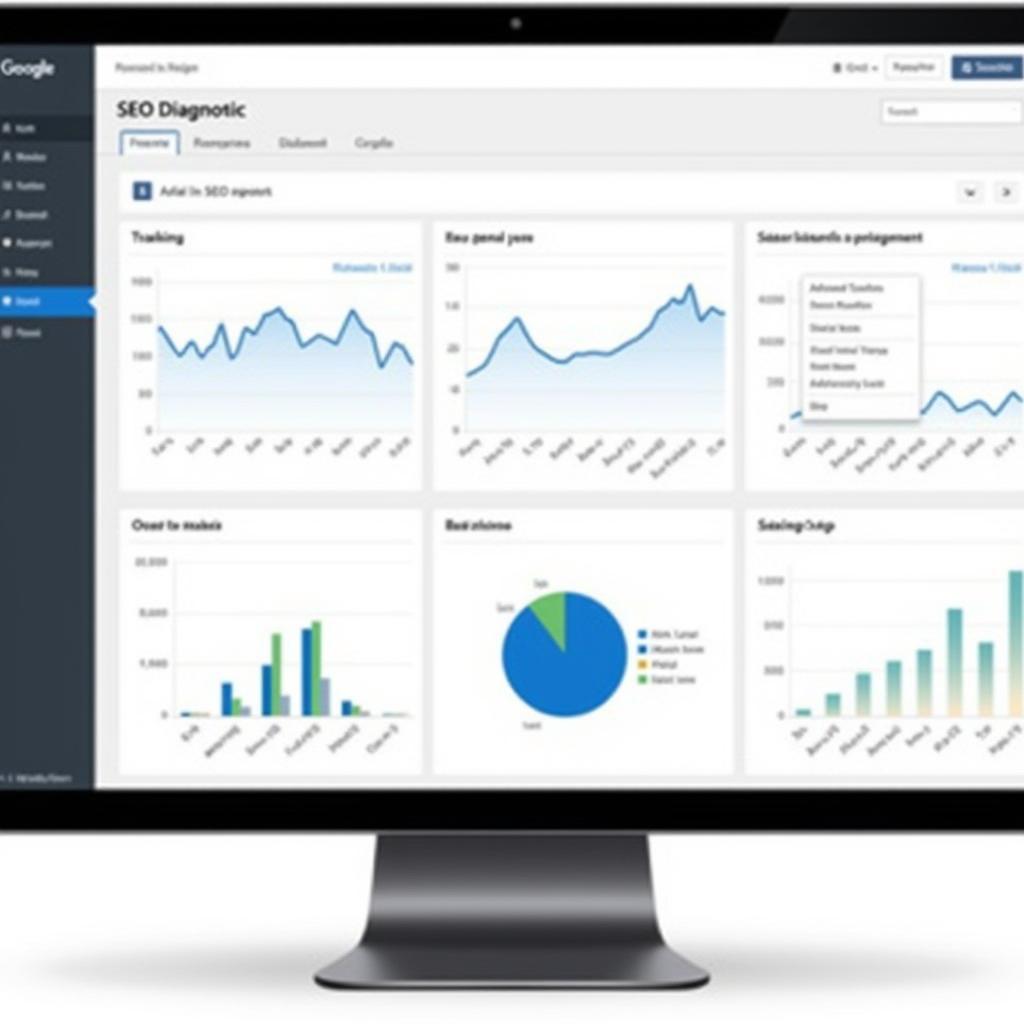Understanding and utilizing car diagnostic tools is crucial for both professional mechanics and car owners who want to delve deeper into their vehicle’s health. This guide will explore the world of car diagnostic tools, covering everything from basic code readers to advanced professional scanners. Having a solid grasp of these tools can save you time and money, and empower you to make informed decisions about your vehicle’s maintenance. Let’s dive in!
After understanding the basic types, you’ll be better equipped to choose the right tool for your needs. For a quick guide on using these tools, check out how to use diagnostic tools.
Types of Car Diagnostic Tools: From Simple to Sophisticated
Car diagnostic tools come in a wide range of functionalities and price points. Knowing the differences is key to choosing the right tool. We’ll break them down into several categories:
Basic Code Readers
These entry-level tools are perfect for the DIY enthusiast. They can read and clear basic diagnostic trouble codes (DTCs), providing a starting point for troubleshooting. While they don’t offer in-depth analysis, they can identify common issues like sensor malfunctions.
OBD-II Scanners
OBD-II scanners are a step up from basic code readers. They offer more detailed information, including live data streams from various sensors, freeze frame data, and the ability to perform some bi-directional controls. These tools are invaluable for diagnosing more complex issues. If you’re looking for an affordable option, explore the inexpensive obdii diagnostic tool.
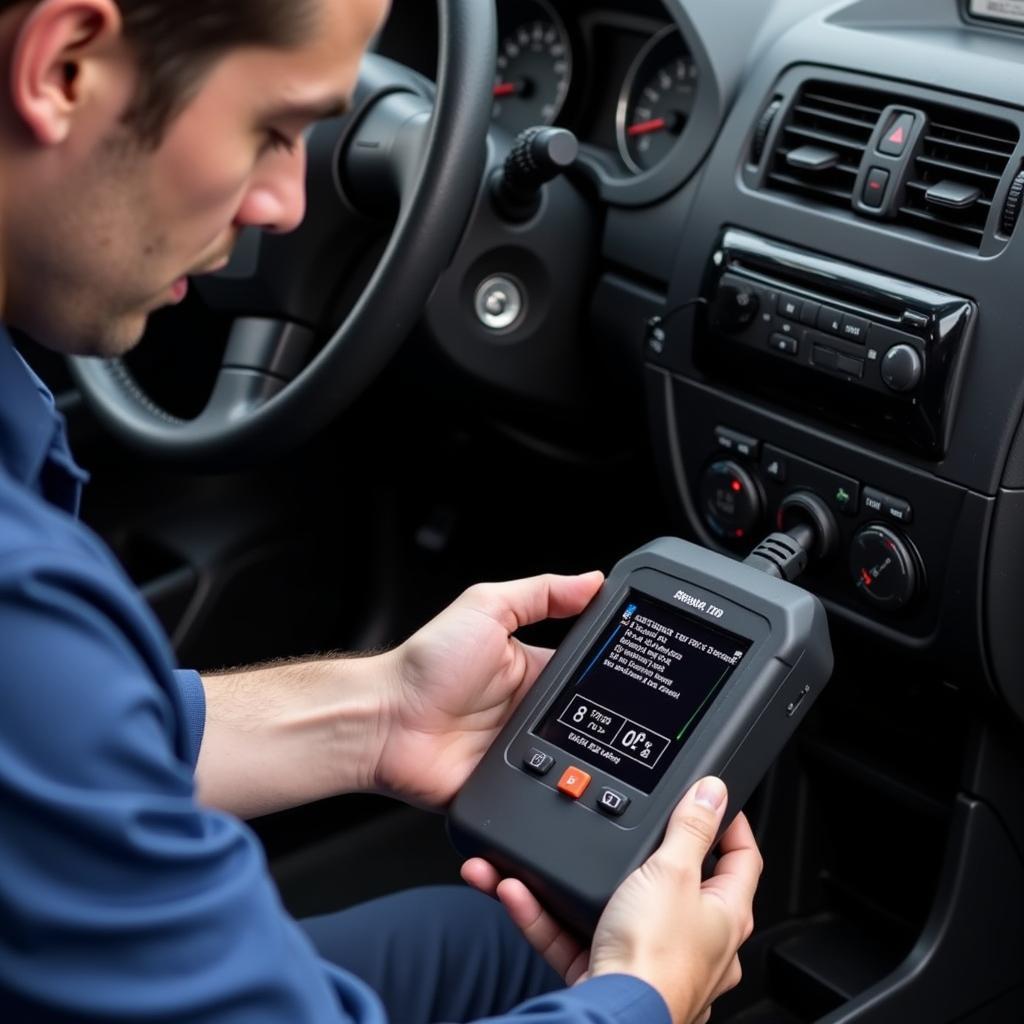 OBD-II Scanner Connected to a Car's Diagnostic Port
OBD-II Scanner Connected to a Car's Diagnostic Port
Professional Scan Tools
These high-end tools are designed for professional mechanics and offer extensive diagnostic capabilities. They can access manufacturer-specific codes, perform advanced diagnostics, programming, and even coding of new modules. These tools are a substantial investment but are essential for serious automotive professionals.
USB Memory Diagnostic Tools
While not directly related to car diagnostics, USB memory diagnostic tools like the usb memory diagnostic tool can be helpful for diagnosing issues with data logging and software updates on certain car diagnostic tools. Keeping your software tools running smoothly is essential for efficient diagnostics.
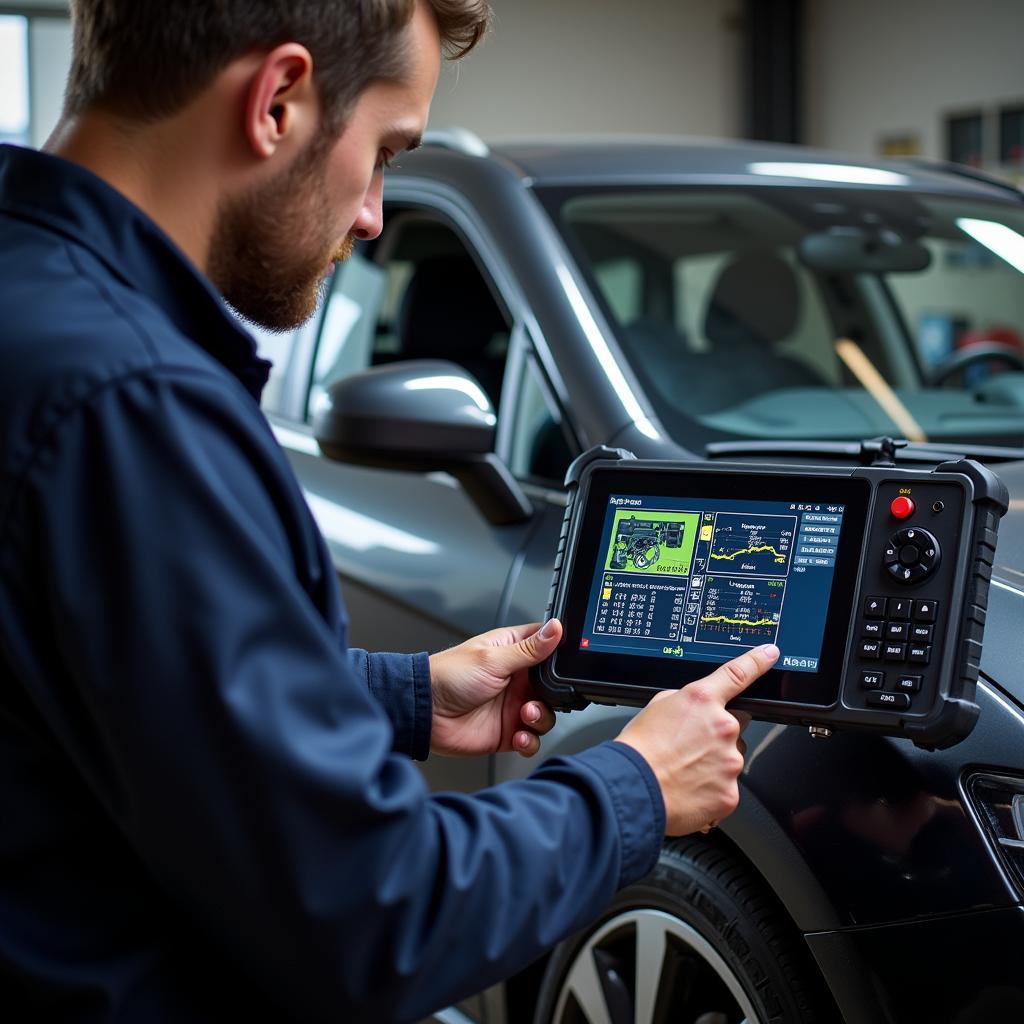 Professional Mechanic Using a Scan Tool to Diagnose a Car Problem
Professional Mechanic Using a Scan Tool to Diagnose a Car Problem
Choosing the Right Car Diagnostic Tool for You
Selecting the right diagnostic tool depends on your needs and budget. Ask yourself:
- What level of detail do I need?
- Will I be using it professionally or for personal use?
- What specific features am I looking for?
Considering Your Skill Level
If you’re a beginner, a basic code reader or an OBD-II scanner might suffice. For professional use, invest in a professional scan tool that meets your specific requirements. For troubleshooting software issues, check out windows diagnostic and repair tool windows 10.
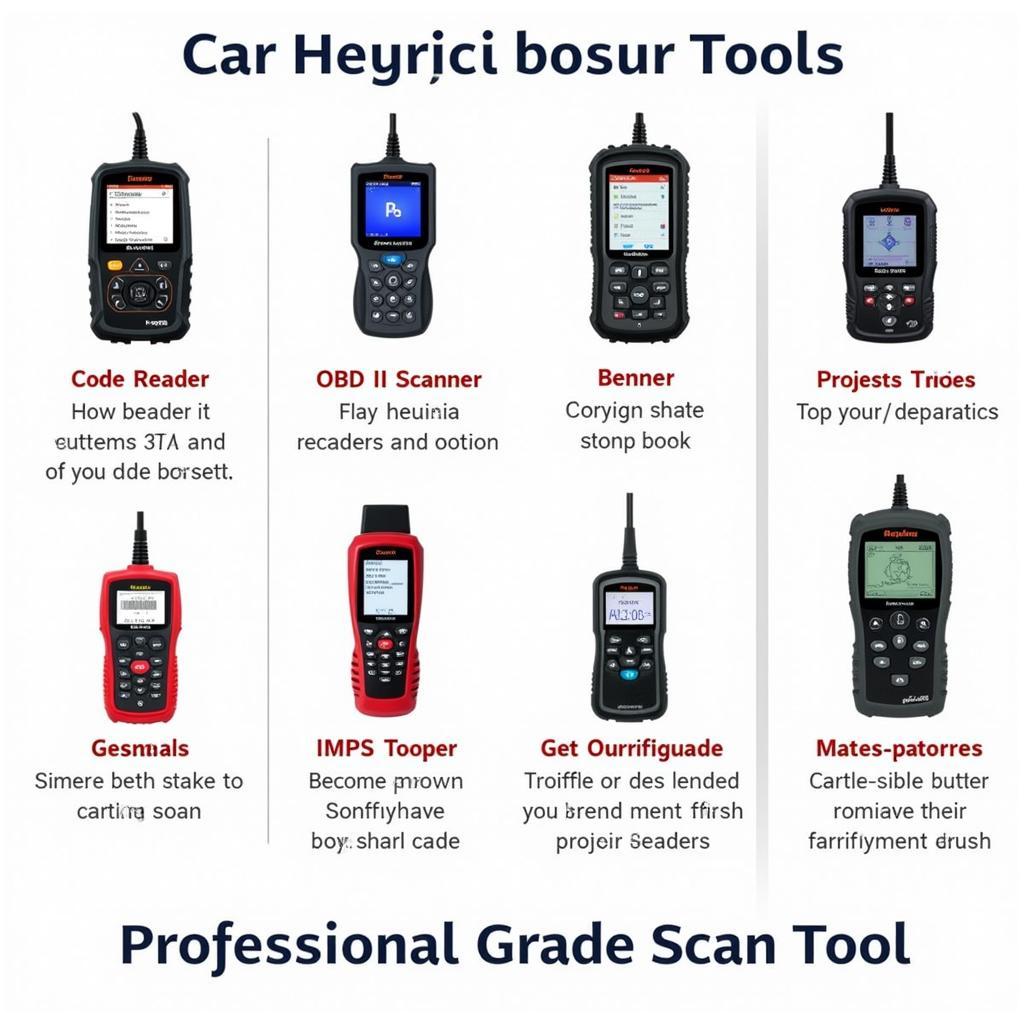 Various Car Diagnostic Tools Ranging from Basic to Professional Grade
Various Car Diagnostic Tools Ranging from Basic to Professional Grade
Key Features to Look For
Regardless of the type of tool, certain features enhance usability and effectiveness:
- User-friendly interface: An intuitive interface makes navigation and data interpretation easier.
- Data logging: This feature allows you to record data over time, helpful for intermittent problems.
- Live data streaming: Viewing real-time sensor data can provide valuable insights.
- Bi-directional controls: This allows you to test components and actuators.
The Future of Car Diagnostic Tools
Car diagnostic tools are constantly evolving, incorporating new technologies and functionalities. We can expect to see more integration with mobile devices, cloud-based diagnostics, and even predictive diagnostics based on machine learning. Tools like the apple diagnostic tool ios are already paving the way for mobile-based diagnostics.
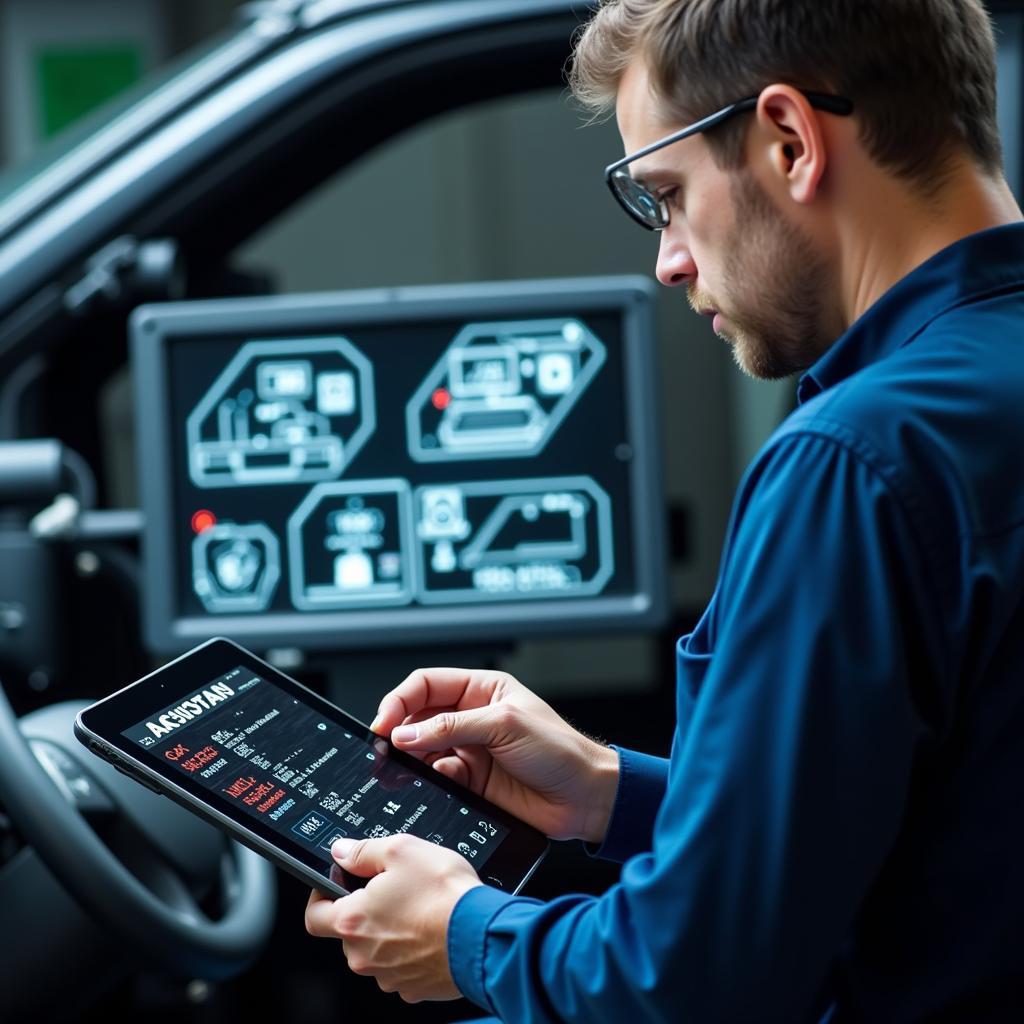 Mechanic Using a Tablet for Car Diagnostics with a Wireless Connection to the Vehicle
Mechanic Using a Tablet for Car Diagnostics with a Wireless Connection to the Vehicle
Conclusion
Car diagnostic tools are essential for anyone wanting to understand and maintain their vehicles. From simple code readers to sophisticated professional scanners, “Car Diagnostic Tools All Of Them” encompass a vast and evolving landscape. Choosing the right tool empowers you to take control of your car’s health and make informed decisions about repairs.
Need further assistance? Feel free to connect with us at ScanToolUS. Our team is ready to help.
Contact us at +1 (641) 206-8880 or visit our office at 1615 S Laramie Ave, Cicero, IL 60804, USA.
FAQ
-
What is the difference between a code reader and a scanner? Code readers retrieve and clear basic DTCs. Scanners offer more in-depth information, including live data.
-
Do I need a professional scan tool? Unless you’re a professional mechanic, a basic code reader or OBD-II scanner is likely sufficient.
-
Can I use a car diagnostic tool on any car? Most modern cars use the OBD-II standard, but older vehicles may require different connectors.
-
What is a DTC? A Diagnostic Trouble Code is a code that indicates a specific malfunction within the vehicle’s systems.
-
How do I use a car diagnostic tool? Connect the tool to the OBD-II port, usually located under the dashboard, and follow the manufacturer’s instructions.
-
What is the importance of live data streaming? Live data allows you to observe sensor readings in real-time, helping you pinpoint issues that might not be evident from DTCs alone.
-
Are there diagnostic tools for specific car brands? Yes, professional-grade scan tools often have manufacturer-specific functionalities.

